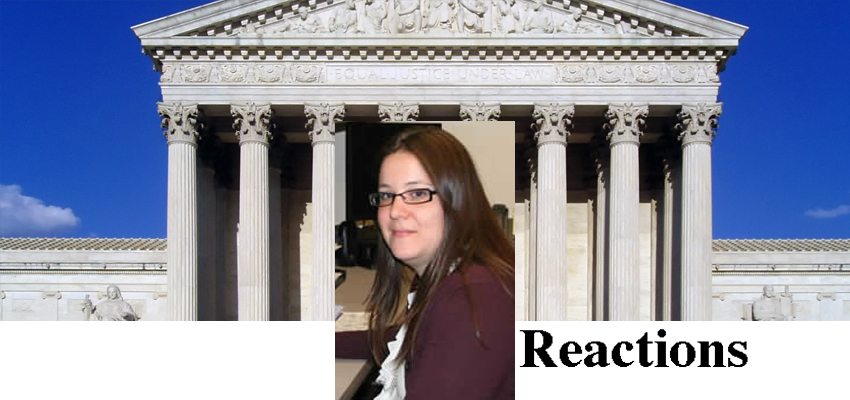Reactions is a new column seeking faculty reactions to news and issues.
In the recent Hobby Lobby case, the U.S. Supreme Court decided that employers of closely-held, not publicly traded companies with religious convictions do not have to provide certain types of contraception under their employee health insurance plan. Assistant Professor of Politics and Government Meghan Leonard says the ruling will have “significant impact” on all employees, not just women.
The majority argued this was a narrow decision, affecting only those companies with religious convictions, and applying only to contraception coverage. So, is this a narrow ruling? I believe the answer is no.
This ruling will have a significant impact on all employees, women, as well as other groups seeking workplace equality. Of course, the most direct impact of the decision will be on women. The ability of women to fully and equally participate in the workplace can, as Justice Ruth Bader Ginsburg made clear, be traced to their ability to make their own decisions about their reproduction.
Every step that has been taken recently – from the state legislatures imposing strict limits on abortion access, to cuts to funding for health care and family planning groups such as Planned Parenthood, to the Court siding with Hobby Lobby – that limits women’s access to health care makes it more difficult for women to control their reproduction and therefore control their ability to fully and equally participate in the workplace.
Beyond women, the most immediate impact of the decision is on the civil rights of gay employees. LGBT groups have long sought workplace equality and protection – more clearly, a right not to be fired or discriminated against because of their sexual orientation. Yet, now LGBT advocacy groups are reconsidering legislation that would have once provided religious exemptions because the Hobby Lobby decision would likely significantly extend these religious exemptions beyond non-profit religious organizations. Indeed since the Court’s decision, religious groups have asked President Barack Obama for an exemption to any executive order that might protect the rights of LGBT workers.
Yes, the Hobby Lobby decision was about the employers and employees of companies that want to claim religious beliefs. More generally it is about the balance between the role of religion in public life and protections of the rights of individuals. The long-term impact of the decision could affect groups of people far beyond this discussed subset of the population. Whether the decision does this remains to be seen.
Leonard teaches courses on the judicial process and Constitutional law, with an emphasis on civil liberties and due process. She is the advisor for the pre-law program at Illinois State.

